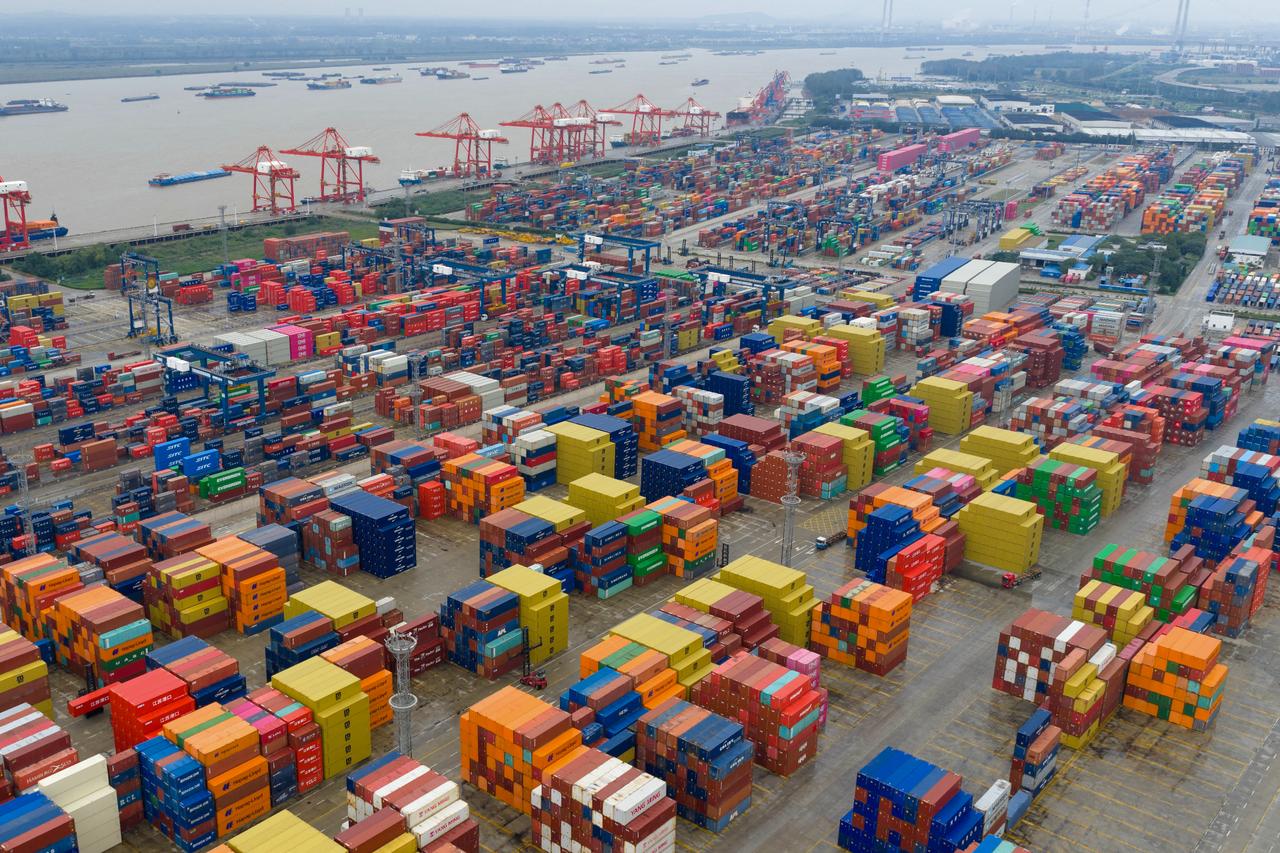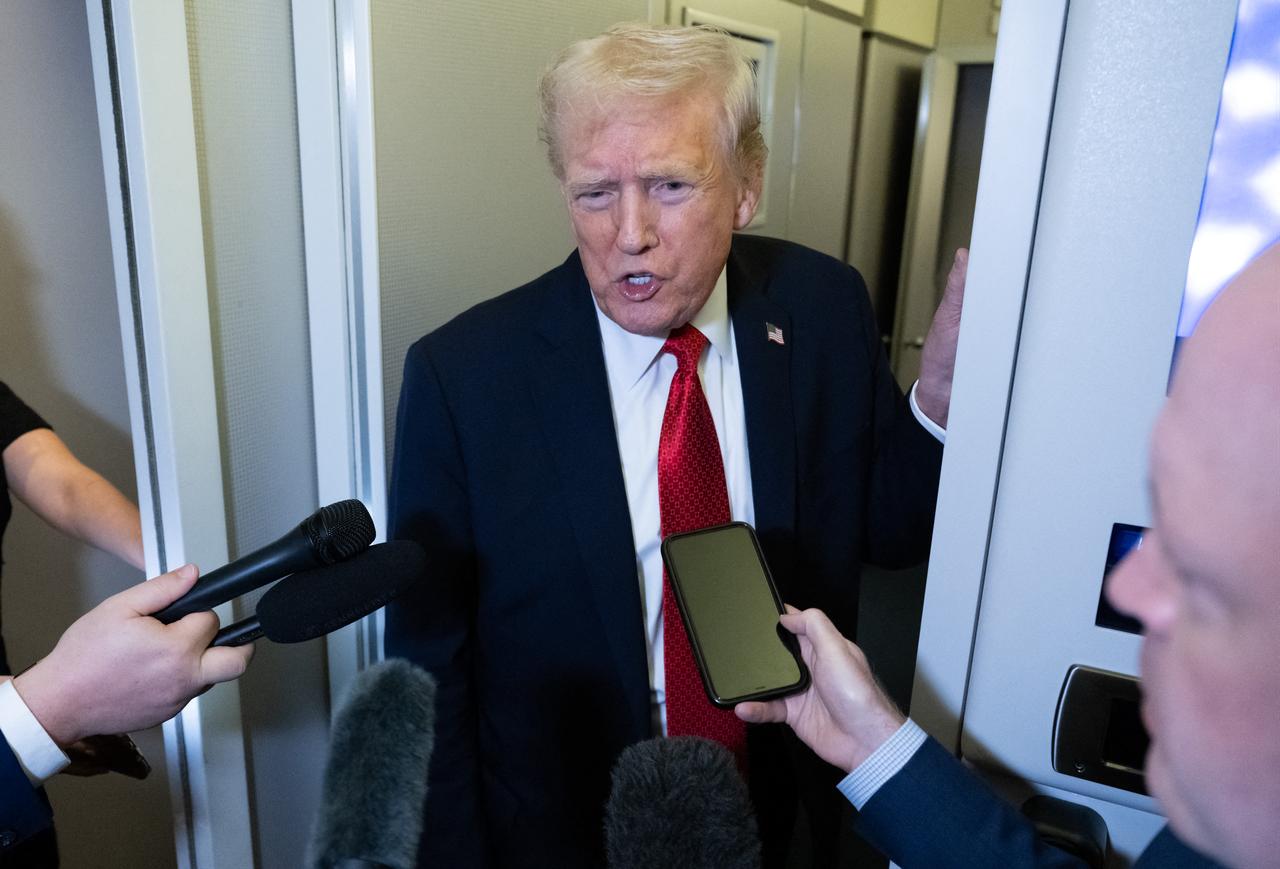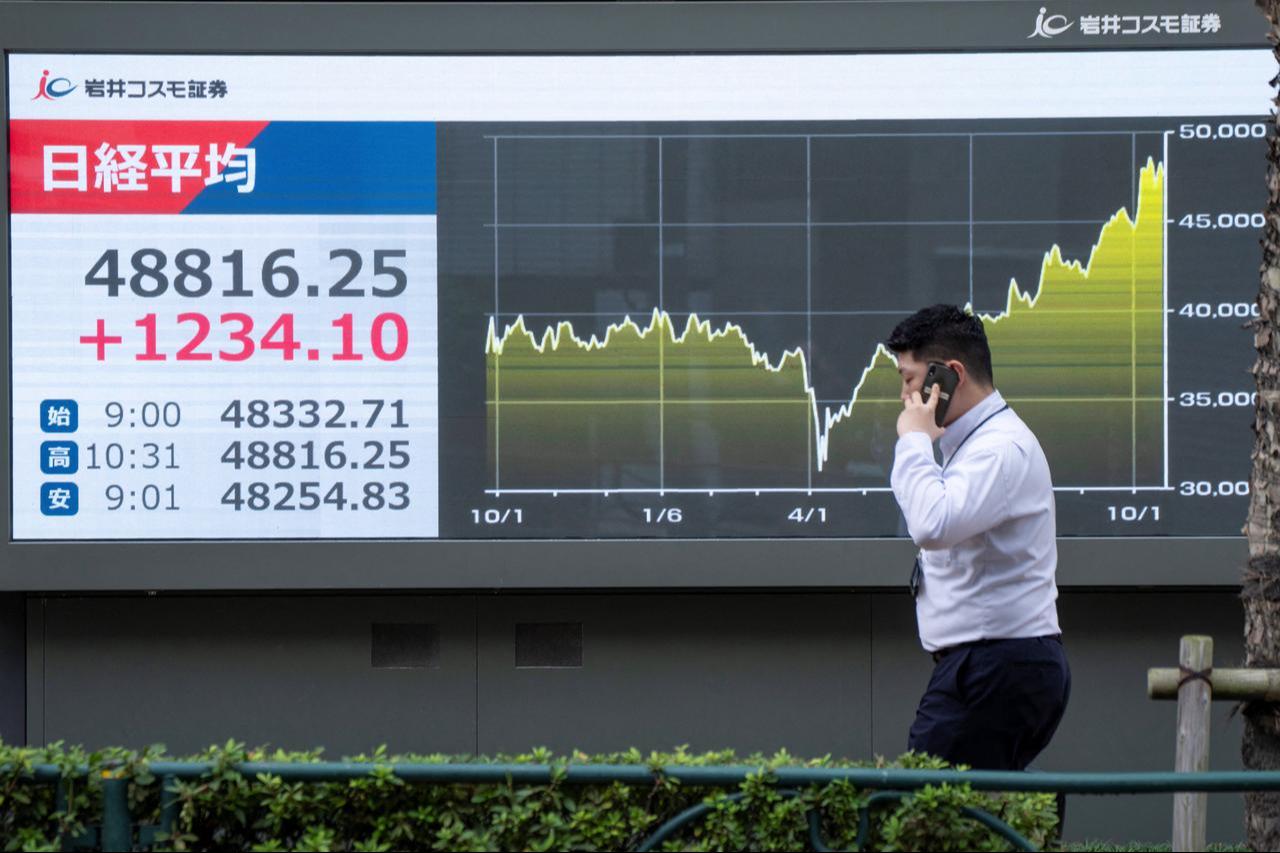
U.S. President Donald Trump said Sunday that China is paying "a tremendous amount of money" in tariffs to the United States and indicated he may consider lowering them if Beijing makes new concessions ahead of his upcoming trip to Asia.
"We have a very good relationship with President Xi (Jinping) of China," Trump told reporters upon his return to Washington, adding that Beijing faces "record-setting tariffs," including a 20% rate on fentanyl-related imports and a cumulative rate of about 157% on some Chinese goods.
Market sentiment had deteriorated last week after Trump threatened to impose 100% tariffs on Chinese goods in response to Beijing’s latest restrictions on rare-earth exports—minerals essential for high-tech manufacturing. The move prompted a new round of tit-for-tat measures and cast doubt on a planned meeting between Trump and Chinese President Xi Jinping.
Currently, the United States imposes a 30% tariff on China, while China maintains a 10% tariff on U.S. goods under the trade truce signed in May, which is set to expire in November.
However, tensions appeared to have cooled over the weekend. Chinese state media reported that Vice Premier He Lifeng and U.S. Treasury Secretary Scott Bessent held what were described as "candid, in-depth, and constructive exchanges," agreeing to hold a new round of negotiations "as soon as possible," which is expected to take place in Malaysia this week.
While maintaining a firm stance, Trump said he was open to tariff adjustments depending on progress in negotiations, remarking, "I want to help China—I don’t want to hurt China—but it can’t be a one-way street."
He confirmed plans to visit South Korea and other Asian nations "in the not too distant future," with trade, security, and regional cooperation expected to top the agenda.

Trump also said Indian Prime Minister Narendra Modi had assured him that India would stop purchasing Russian crude oil, warning that otherwise the country would continue to face "massive tariffs."
"I spoke with Prime Minister Modi of India, and he said he’s not going to be doing the Russian oil thing," Trump said, emphasizing Washington’s position against trade with Moscow amid ongoing Western sanctions.
India has significantly increased its imports of discounted Russian oil since 2022, becoming one of Moscow’s largest energy customers despite pressure from Western governments to scale back such purchases. In August, Trump raised reciprocal tariffs on Indian goods to 50%, up from the previously set rate of 25%.

Asian markets rose Monday after conciliatory comments from Trump eased worries over renewed China-U.S. trade tensions. Investors also took heart from data showing China’s economy grew more than expected in the third quarter, reinforcing optimism across the region.
Tokyo’s Nikkei 225 surged 2.9% to a record 48,970.40 points following news of a political breakthrough that ended weeks of uncertainty. Japan’s ruling party said it would finalize a coalition deal on Monday, paving the way for Sanae Takaichi to become the country’s first female prime minister.
Hong Kong’s Hang Seng Index climbed 2.2% to 25,797.98, while Shanghai’s Composite Index gained 0.6% to 3,860.79. The rebound followed a rally on Wall Street, where all three major U.S. indexes recovered from Thursday’s sharp losses driven by renewed banking-sector concerns, including fresh credit risks and fraud allegations among some regional banks.
Meanwhile, precious metals retreated as global risk appetite improved. Gold prices slipped to around $4,220 per ounce before rebounding to $4,250, while silver traded near $51.80.
Platinum and palladium both fell by more than 1%, to approximately $1,584 and $1,480, respectively, as investors shifted away from safe-haven assets amid easing geopolitical and trade tensions.
Oil prices also edged lower, with West Texas Intermediate (WTI) crude falling 0.5% to $57.24 per barrel, while Brent North Sea crude declined by the same margin to $61.02.